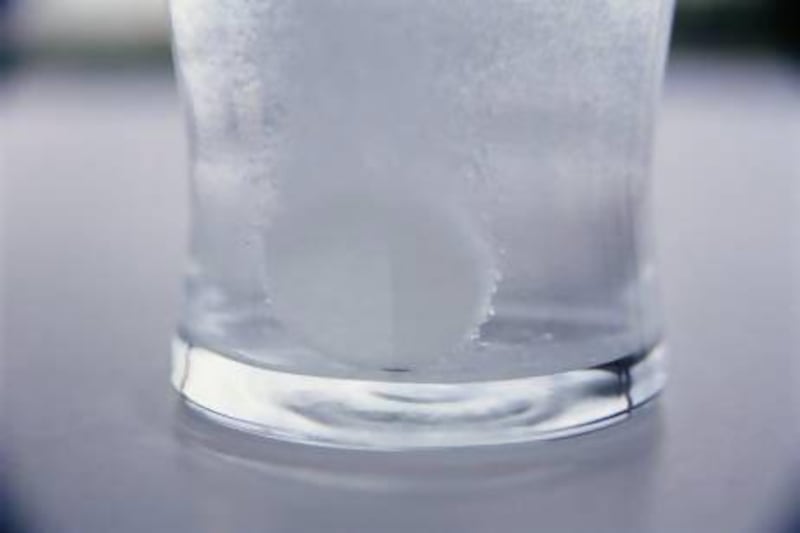Research into heartburn has indicated that traditional anti-acid medicines are not the best way to treat the common condition, and can even make it worse in the long-term. Laura Holland reports
Heartburn after meals can soon eat away the pleasure of your favourite foods and turn mealtimes into a very unpleasant prospect.
The term heartburn is rather misleading as it has nothing to do with you heart, rather a warm burning sensation within the chest area often accompanied by pain that can make its way all the way up through the throat into the jaw.
Medically, this condition is known as pyrosis or acid indigestion. Given the plethora of over-the-counter pharmaceutical remedies, heartburn is a common complaint and, according to the International Foundation for Functional Gastrointestinal Disorders, around 44 per cent of Americans suffer with this at least once per month.
Heartburn is usually treated with anti-acid drugs but there is concerning new research that suggests that this medication most commonly prescribed may be raising the risk of heartburn over time. Moreover, once you start on the anti-acid medication trail you will never be free from the burn.
Many gastroenterologists are now suggesting that this traditional drug treatment may not guarantee relief because, even though excess acid may be presenting itself as the predominant symptom, it may not be the underlying cause; in fact, quite the contrary, according to Prateek Sharma, a gastroenterologist at the University of Kansas School of Medicine.
An article featured in the Nutrition Review Journal reveals that hydrochloric acid (HCl) is essential to the digestive process. It is a gastric secretion that enables the body to break down proteins, activate important enzymes and hormones, and protect against bacterial overgrowth. In the stomach, digestion occurs with the release of a number of gastric secretions, including HCl and this is a prerequisite for healthy digestion.
However, this is not the case for many individuals as research suggests it is more likely that there is insufficient stomach acid present, the production of which also declines naturally as we age, and this low stomach acid is the real cause of heartburn.
With low acid levels being the cause of heartburn, treating it with anti-acids is the exact opposite of what really is needed by the body. Nutritional Wellness reports that up to a staggering 95 per cent of people who believe they have high stomach acid and suffer with heartburn actually have a stomach acid deficit.
Dr Jonathan Wright, a best-selling author and the medical director of Tahoma Clinic in Washington state, adds that in 24 years of nutritionally orientated practice, I’ve worked with thousands of individuals who have found the cause of their heartburn and indigestion to be low stomach acidity. In nearly all of these folks, symptoms have been relieved and digestion improved when they’ve taken supplemental hydrochloric acid and pepsin capsules.
So next time you are feeling the burn, think twice before you reach for your usual anti-acid medication – this may provide you with periodic relief but could actually be perpetuating the cycle and making it worse over time.
Instead, our approach must be to promote stomach acid for the efficient digestion of our food along with other digestive enzymes to fight fire with fire.
To boost your stomach acid
• Pepsin and Bromelain are digestive enzymes that can be found in papayas and pineapples. Eating fresh papaya or even drinking pineapple juice has been shown to be effective when added to your diet. Most of the Bromelain is found in the pineapple's core so be sure to juice this.
• Ginger helps promote stomach acid. Do not take while you are in the throws of heartburn, but if taken before meals, ginger can aid digestion as it's been used for thousands of years in Ayurveda for such challenges.
• Drinking peppermint and liquorice teas have also proved helpful.
• Fermented foods such as sauerkraut promote stomach acid.
• Taking 1-2 teaspoons of a raw, organic and unfiltered apple-cider vinegar before meal times is one of the easiest ways to boost stomach acid.
To avoid the burn
• Avoid caffeine, citrus, tomatoes, chilli and spices.
• Also avoid fast foods and convenience foods.
• Don't eat late at night. Make sure you have at least two to three hours after your meal before you go to bed.
• Drink plenty of water throughout the day but not at mealtimes, or just after eating, as this dilutes stomach acids and digestive enzymes.
• Aloe vera juice taken in the morning and again in the evening is soothing to the entire digestive tract and can help promote a happy stomach.
Follow us on Facebook for discussions, entertainment, reviews, wellness and news.
Follow us
[ @LifeNationalUAE ]






